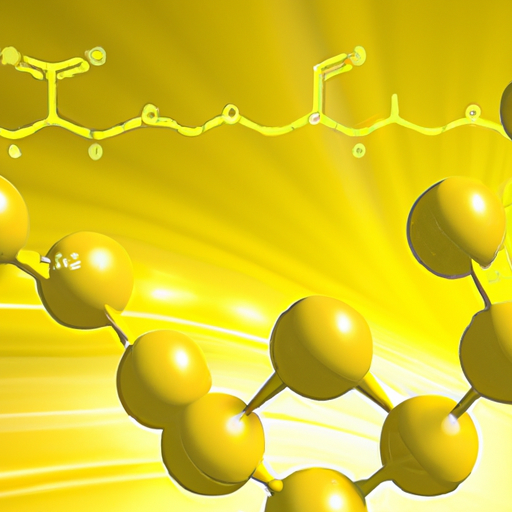Curious about the potential anti-aging effects of berberine? Derived from various plants, berberine has a long history of use in traditional Chinese and Ayurvedic medicine for its potential health benefits. With its wide range of properties, including anti-inflammatory and antioxidant effects, berberine has gained attention for its use in managing metabolic health. Studies suggest that it may help regulate blood sugar levels and reduce cholesterol, making it beneficial for individuals with conditions like type 2 diabetes and cardiovascular issues. However, before starting any new supplement, it’s crucial to consult with a healthcare professional, especially if you have pre-existing health conditions or are taking other medications, as berberine could interact with certain drugs. So, let’s explore the question: Is berberine anti-aging?
Overview of Berberine
Introduction to Berberine
Berberine is a natural health supplement derived from various plants, such as Berberis vulgaris, Berberis aristata, and Coptis chinensis. It has a long history of use in traditional Chinese and Ayurvedic medicine due to its potential health benefits.
Sources of Berberine
Berberine can be obtained from plants like barberry, tree turmeric, and goldthread. These plants contain high concentrations of berberine in their roots, stems, and bark. Berberine supplements are typically derived from these plant sources.
Traditional Uses of Berberine
For centuries, berberine has been used in traditional medicine systems. It has been employed to treat various health conditions, such as digestive issues, bacterial infections, and liver problems. Traditional practitioners also used berberine for its anti-inflammatory and antioxidant properties.
Properties of Berberine
Berberine possesses multiple properties that contribute to its potential health benefits. It has been found to have anti-inflammatory effects, reduce oxidative stress, and exhibit antimicrobial activity. These properties make it a versatile supplement for promoting overall health and well-being.

Berberine and Metabolic Health
Regulation of Blood Sugar Levels
One of the most well-researched uses of berberine is its potential to regulate blood sugar levels. Studies have indicated that berberine can improve insulin sensitivity and glucose metabolism, making it beneficial for individuals with conditions like type 2 diabetes and insulin resistance. By enhancing cellular glucose uptake and inhibiting glucose production in the liver, berberine helps maintain stable blood sugar levels.
Benefits for Type 2 Diabetes
Berberine shows promise in effectively managing type 2 diabetes. Research suggests that berberine can lower fasting blood sugar levels, reduce glycosylated hemoglobin (HbA1c) levels, and improve glucose tolerance. These effects make berberine a valuable supplementation option for individuals with type 2 diabetes, either alongside or as an alternative to conventional treatments.
Effects on Insulin Resistance
Insulin resistance is a condition where the body’s cells become less responsive to the hormone insulin. Berberine has been found to improve insulin sensitivity, allowing cells to respond more effectively to insulin. This improvement in insulin sensitivity can help prevent the development of type 2 diabetes and may also aid in managing existing cases.
Impact on Cholesterol Levels
Berberine has shown potential in reducing cholesterol levels, including total cholesterol and LDL (“bad” cholesterol). Elevated cholesterol levels are a risk factor for cardiovascular diseases such as heart attacks and strokes. By lowering cholesterol levels, berberine may contribute to improved cardiovascular health and reduce the risk of these diseases.
Improvements in Cardiovascular Health
Due to its ability to regulate blood sugar levels and reduce cholesterol, berberine has been associated with improvements in cardiovascular health. Studies have indicated that berberine can reduce blood pressure, decrease triglyceride levels, and improve overall heart function. These cardiovascular benefits make berberine an essential supplement for individuals looking to support their heart health.

Berberine as an Anti-Aging Supplement
Introduction to Anti-Aging
Anti-aging refers to measures taken to reduce the effects of aging on the body and maintain optimal health as one grows older. Various factors contribute to the aging process, including oxidative stress and cellular aging. Berberine has been studied for its potential as an anti-aging supplement.
Role of Oxidative Stress
Oxidative stress occurs when there is an imbalance between the production of free radicals and the body’s ability to neutralize them using antioxidants. Increased oxidative stress can damage cells, proteins, and DNA, leading to accelerated aging and the onset of age-related diseases.
Effects of Berberine on Oxidative Stress
Berberine has been found to possess antioxidant properties, which help neutralize free radicals and reduce oxidative stress. By reducing oxidative stress, berberine may slow down the aging process and protect against age-related diseases.
Influence on Cellular Aging
Cellular aging is a natural process but can be accelerated by factors such as oxidative stress. Berberine has been shown to influence cellular aging by activating certain enzymes involved in DNA repair and maintenance. This activation helps preserve cellular health and may contribute to slowing down the aging process.
Impact on Telomeres
Telomeres are protective structures located at the ends of chromosomes. They play a vital role in preserving the integrity of the genetic material during cell division. Shortened telomeres are associated with aging and age-related diseases. Preliminary research suggests that berberine may help maintain telomere length, potentially slowing down the aging process.
Potential for Skin Health
Berberine’s antioxidant and anti-inflammatory properties make it a promising supplement for supporting skin health. These properties help protect the skin against oxidative damage and inflammation, both of which contribute to premature aging and various skin conditions.
Research on Anti-Aging Properties
While the research on berberine’s anti-aging properties is still in its early stages, there is growing interest in exploring its potential. Preliminary studies and animal models have shown promising results, and future research may further elucidate berberine’s role as an anti-aging supplement.

Other Potential Health Benefits of Berberine
Anti-Inflammatory Effects
Berberine exhibits significant anti-inflammatory properties, which can help mitigate inflammation in the body. Chronic inflammation is associated with various diseases, including cardiovascular diseases, arthritis, and certain cancers. By reducing inflammation, berberine may contribute to the prevention and management of these conditions.
Antimicrobial Properties
Berberine has been used for centuries as a natural remedy for bacterial, viral, and fungal infections. It has been shown to inhibit the growth of various microorganisms, making it a potential treatment option for infections. However, further research is needed to establish the full extent of its antimicrobial effects and specific applications.
Possible Benefits for Digestive Health
Traditional medicine has long utilized berberine for its digestive health benefits. It has been shown to enhance gut motility and reduce inflammation in the digestive tract. Berberine may also help regulate gut bacteria, promoting a healthy balance of microbiota and supporting overall digestive health.
Effects on Weight Management
Berberine has been investigated for its potential effects on weight management. Studies have suggested that berberine can help reduce body weight, body mass index (BMI), and waist circumference. These effects may be attributed to berberine’s ability to regulate metabolism and improve insulin resistance.
Immunomodulatory Actions
Berberine has been found to exert immunomodulatory effects, meaning it can modulate the immune system’s response. It may help regulate immune function, enhancing its ability to defend against infections and maintain overall immunity.

Safety and Precautions
Consultation with Healthcare Professional
Before starting any new supplement, including berberine, it is essential to consult with a healthcare professional. They can provide guidance based on your specific health needs and any medications you may be taking.
Interactions with Medications
Berberine may interact with certain medications, including those for diabetes, hypertension, and liver conditions. It is crucial to inform your healthcare professional about all the medications you are currently taking to identify any potential interactions.
Appropriate Dosage
The appropriate dosage of berberine may vary depending on individual factors such as age, overall health, and specific health condition being targeted. It is important to follow the recommended dosage instructions provided by the supplement manufacturer or as advised by your healthcare professional.
Adverse Effects or Allergic Reactions
While berberine is considered safe for most individuals, some people may experience mild side effects such as digestive discomfort, nausea, or constipation. Allergic reactions are rare but possible. If you experience any concerning symptoms after taking berberine, discontinue use and seek medical attention.
Special Considerations for Pregnant or Nursing Individuals
Pregnant or nursing individuals should exercise caution when considering berberine supplementation, as there is limited research on its safety during these periods. It is advisable to consult with a healthcare professional before starting any new supplement regimen.

Conclusion
Summary of Findings
Berberine is a natural health supplement with a variety of potential benefits. It has been extensively studied for its effects on metabolic health, including its ability to regulate blood sugar levels, improve insulin resistance, and reduce cholesterol. Additionally, berberine shows promise as an anti-aging supplement due to its antioxidant properties, influence on telomeres, and potential for promoting skin health. It also possesses anti-inflammatory, antimicrobial, and immunomodulatory properties, suggesting a wide range of potential health benefits.
Considerations for Anti-Aging
While berberine shows promise as an anti-aging supplement, it is important to note that research in this area is still ongoing. Further studies are needed to establish the full extent of its benefits and the optimal dosages for specific age-related conditions.
Future Research Directions
The potential health benefits of berberine continue to be explored in various research studies. Future research directions may include investigating its effects on specific age-related diseases, exploring optimal dosages and formulations, and further understanding its mechanisms of action. Continued research will help refine its applications and provide more comprehensive evidence for its potential as a natural health supplement.







